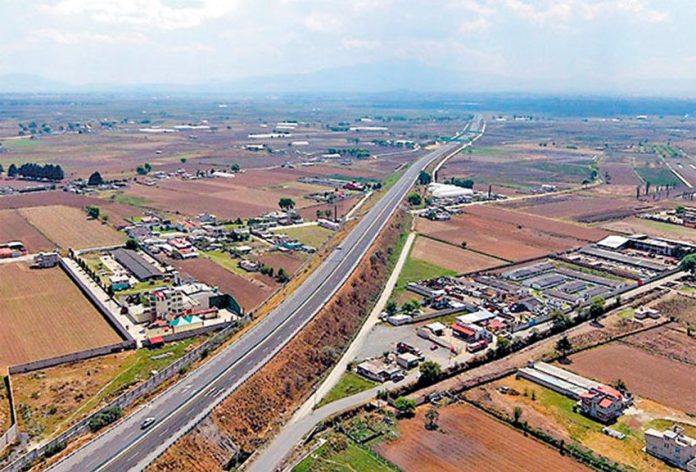To combat robbery and improve security on the nation’s highways, the federal government has set itself an ambitious goal: 5,000 kilometers of video surveillance by the year 2020.
Reaching the target won’t come cheap, however, with an investment of 7.7 billion pesos (US $375 million) needed to add approximately 3,000 kilometers to the range already covered by existing cameras.
Transportation Secretary Gerardo Ruiz Esparza said yesterday that the aim for this year is to reach 3,700 kilometers of surveillance coverage and the priority will be the country’s busiest highways in Guerrero, Querétaro, Puebla and México state.
However, he added that eventually “the idea is for all highways to be covered by video surveillance.”
Speaking at a freight transport forum in Quintana Roo, Ruiz said that highway concessionaires may collaborate on the project, although there is nothing in their contracts to oblige them to do so.
Pinfra, Meta and Omega are among the concession holders that have already committed to installing new cameras on highways they operate, although the combined distance covered by their pledges is only just over 100 kilometers.
The National Infrastructure Fund (Fonadin) has made a larger commitment, pledging 527 million pesos (US $25.7 million) to install cameras on five highways covering 473 kilometers.
The total investment needed to provide video surveillance to the additional 1,740 kilometers slated for 2018 is just over 3.8 million pesos (US $185 million).
The number of reported truck robberies soared last year to 2,944, almost double the 1,587 cases that occurred in 2016.
At yesterday’s forum, the president of the National Private Transport Association (ANTP) made an impassioned plea to the transportation secretary to address the problem.
“We’re distressed by the increase of robberies because apart from the freight, we now have to mourn the loss of lives. We have to return calm to the sector, secretary. We need it urgently,” Alex Theissen said.
“Be assured that authorities understand. We are following up on an issue that is as important to us as it is to you,” Ruiz responded.
However, the president of the National Chamber of Trucking (Canacar) charged that despite making repeated requests to authorities to beef up security on the country’s most dangerous highways, little has been done.
“We deplore what is happening because they’re not just stealing, they’re attacking our drivers. We’re asking for measures to be taken, in some way . . . A few days ago, we spoke to the Federal Police and they offered to start a highway security operation but nothing happened,” Enrique González Muñoz said.
Many trucking companies have instead resorted to paying for security out of their own pockets.
It’s not just truckers who have been affected by the rising levels of violent crime on Mexico’s roads.
A family of United States citizens suffered a terrifying carjacking ordeal on the Siglo 21 toll highway in Michoacán earlier this year, while a two-year-old infant was killed and two women were sexually assaulted in an incident on the Mexico City-Puebla highway last year.
Priests and politicians have also been targeted in violent highway attacks.
In addition to highway robberies and attacks, train robberies also spiked sharply last year, increasing by 476% between the first and last quarters of 2017.
Source: Milenio (sp), El Economista (sp)
